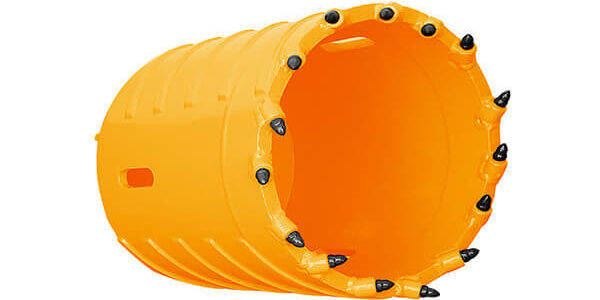Foundation Drill – 5 Things Beginners’ Needs To Know
Are you considering entering the world of foundation drilling? Whether you’re a novice or just looking to brush up on your knowledge, understanding the basics is crucial for success. Foundation drilling is a specialized field that requires specific tools and techniques to ensure efficiency and safety.
In this post, we’ll explore five essential things beginners need to know about foundation drilling, with a focus on the tools required for the job.
Types of Foundation Drilling Tools:
Foundation drilling tools come in various types, each designed for specific soil conditions and drilling requirements. Some common tools include augers, buckets, and core barrels. Augers are ideal for drilling through softer soil types, while buckets are better suited for harder, more compacted soils. Core barrels are used for drilling through rock and other challenging materials. Understanding the different types of tools available is essential for selecting the right equipment for your project.
Importance of Proper Maintenance:
Like any other equipment, foundation drilling tools require regular maintenance to ensure optimal performance and longevity. Proper maintenance includes cleaning, lubricating, and inspecting tools for any signs of wear or damage. Neglecting maintenance can lead to premature wear and tear, resulting in costly repairs or replacements. By establishing a routine maintenance schedule, beginners can prolong the lifespan of their drilling tools and avoid unnecessary downtime.
Safety Precautions:
Safety should always be a top priority when operating foundation drilling equipment. Beginners must familiarize themselves with safety protocols and procedures to prevent accidents and injuries on the job site. This includes wearing appropriate personal protective equipment (PPE), such as hard hats, safety glasses, and steel-toed boots. Additionally, operators should be trained on proper drilling techniques and emergency response procedures to handle unexpected situations effectively.
Understanding Soil Conditions:
Soil conditions play a significant role in determining the success of a foundation drilling project. Beginners need to understand how different soil types behave and how they can impact drilling operations. Factors such as soil density, moisture content, and composition can affect drilling efficiency and tool selection. Conducting soil tests and consulting with geotechnical engineers can provide valuable insights into the soil conditions present at the job site, helping beginners make informed decisions.
Investing in Quality Tools:
Investing in high-quality foundation drilling tools is essential for achieving reliable results. While it may be tempting to opt for cheaper alternatives, inferior tools can compromise the integrity of the project and pose safety risks to operators. Quality tools are designed to withstand the rigors of drilling and are less likely to fail or malfunction during operation. Although they may come with a higher upfront cost, the long-term benefits of investing in quality tools far outweigh the initial expense.
In conclusion, foundation drilling is a complex process that requires careful planning, proper equipment, and adherence to safety guidelines. By understanding the basics of foundation drilling and investing in the right tools, beginners can set themselves up for success in this challenging yet rewarding field.

